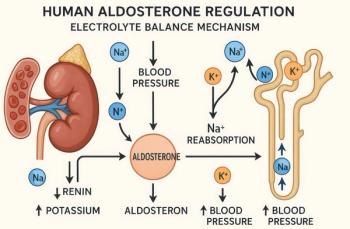
Heart Failure and Hypertension: Where do β-blockers Belong?
The author wants your opinion on the habitual titration of β-blockers in patients with comorbid HF who are not at BP goal.
I am struggling with what I experience as a disconnect in contemporary medical practice, specifically in the area of agents to treat hypertension.
On one hand, for example, the data for use of β-blockers in heart failure is strong.1,2,3 On the other hand, as primary treatment for hypertension, the data for the class is either inferior to that of other antihypertensive agents or downright bad, as demonstrated in ASCOT-BPLA wherein you may recall that atenolol exhibited an 11% higher mortality rate than amlodipine.4,5
Heart failure and coronary disease patients also frequently have hypertension. Despite the negative data regarding β-blockers as antihypertensive therapy, some of these multidiagnosis patients are either still taking atenolol or remain above target blood pressure because, instead of receiving other more effective agents for blood pressure control, they are being titrated up in dose on β-blockers. Frequently, it seems the disconnect occurs between the primary care and subspecialty physicians.
It seems to me that there are many primary care practitioners who still think that β-blockers are the gold standard agents for blood pressure control. Shouldn’t there be greater awareness of better ways to treat hypertension in patients with comorbid coronary disease, heart failure, or who already take β-blockers for migraine prophylaxis?
May I propose the following changes for discussion?
If a patient on atenolol for a subspecialty indication (such as heart failure) develops hypertension, switch to another β-blocker. If a similar patient is above target, adjust other antihypertensive agents (not β-blockers) to achieve control. In the 3 studies of β-blocker efficacy in persons with heart failure cited earlier, patients in both the placebo and β-blocker limb were on all other classes of antihypertensives.1,2,3
What are your thoughts on the topic?
Please send your comments to
References:
1.) MERIT-HF STUDY GROUP. Effect of metoprolol CR/XL in chronic heart failure: Metoprolol CR/XL Randomized Intervention Trial in Congestive Heart Failure (MERIT-HF). Lancet 1999; 353:2001-2007.
2.) CIBIS-II Investigators and Committees. The Cardiac Insufficiency Bisoprolol Study (CIBIS-II): a randomized trial. Lancet 1999; 353:9-13.
3.) Effect of carvedilol on Survival in Severe Chronic Heart Failure. N Engl J Med. 2001; 344:1651-1658.
4.) Wysonge CS, Bradley HA, Volmink J, et. al. Beta-blockers for hypertension, Cochrane Database Syst. Rev. 2017;Jan.20; 1:CD002003.
5.) Dahlöf, B, Sever, PS, Poulter, NR, et. al for the ASCOT investigators. Prevention of cardiovascular events with an antihypertensive regimen of amlodipine adding perindopril as required versus atenolol adding bendroflumethiazide as required, in the Anglo-Scandinavian Cardiac Outcomes Trial-Blood Pressure Lowering Arm (ASCOT-BPLA): a multicentre randomised controlled trial. Lancet. 2005; 366: 895–906
Newsletter
Enhance your clinical practice with the Patient Care newsletter, offering the latest evidence-based guidelines, diagnostic insights, and treatment strategies for primary care physicians.

































































































































